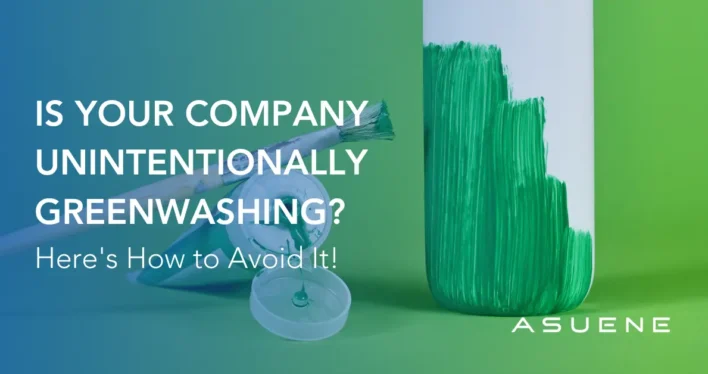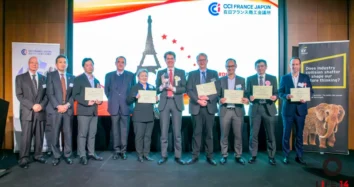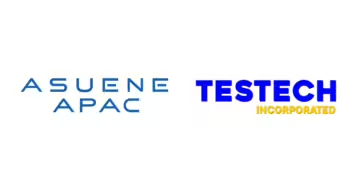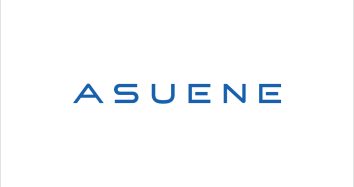Consumers and investors around the world are increasingly environmentally conscious. They actively seek out sustainable options and are willing to reward companies that prioritize the planet. But beware – greenwashing, the deceptive portrayal of a company or its products as eco-friendly, can backfire dramatically. Greenwashing erodes trust, damages brand reputation, and exposes companies to legal and financial risks. Here’s a wake-up call for businesses:
- 72% of consumers declare they would boycott brands caught greenwashing. (Nielsen Global Sustainability Survey 2021)
- Regulators are cracking down, with fines and bans becoming increasingly common.
- Environmental groups file lawsuits against greenwashing companies – and can win.
The Seven Sins of Greenwashing and How They Can Trip You Up
Greenwashing can be subtle or blatant. Here are some red flags to watch out for, categorized by the now-famous “Seven Sins of Greenwashing” developed by TerraChoice in 2007:
- Sin #1: No Proof – Making claims without evidence to support them. This could be anything from boasting about “sustainable packaging” without details on recycled content to touting energy efficiency without independent verification.
- Sin #2: Vagueness – Using ambiguous terms like “eco-friendly” without clear definitions. Vague claims leave room for misinterpretation and ultimately mislead consumers.
- Sin #3: Irrelevance – Highlighting irrelevant environmental attributes that don’t impact the product’s overall footprint. For example, focusing on water conservation for a product with a high carbon footprint obfuscates the bigger picture.
- Sin #4: Hidden Trade-Offs – Focusing on positive aspects while concealing negative environmental impacts. This could involve highlighting a product’s use of recycled plastic while neglecting its energy-intensive manufacturing process.
- Sin #5: Fake Certifications – Creating false eco-labels or endorsements. Consumers increasingly look for credible certifications, so creating your own undermines trust.
- Sin #6: Lesser of Two Evils – Comparing products within a non-eco-friendly category. This tactic doesn’t make your product sustainable; it simply positions it as “better” than other unsustainable options.
- Sin #7: Outright Lies – Fabricating environmental benefits. This is the most egregious form of greenwashing and can lead to serious legal repercussions.
Regulatory Crackdown: Europe Leading the Charge
The EU is leading the charge against greenwashing with a multi-pronged approach. To empower investors, the EU Green Taxonomy classifies sustainable economic activities, providing a clear framework. Additionally, mandatory disclosure regulations (CSRD) require companies to report their environmental, social, and governance risks and impacts, fostering transparency. Further tightening the net, a ban on deceptive green terms will be implemented in 2026, eliminating vague eco-claims on products sold in the EU and allowing consumers to purchase responsibly.
The Path to Genuine Sustainability: Building Trust Through Transparency
Building trust and transparency is the only sustainable path to success in today’s market. Here are actionable steps to avoid greenwashing and achieve genuine environmental credibility:
- Conduct internal audits to assess your environmental footprint and identify areas for improvement. This is the foundation for setting realistic sustainability goals.
- Seek certifications from recognized sustainability organizations, like FSC for sustainable forestry, SBTi for climate goals or LEED for green buildings. These certifications provide independent verification of your environmental efforts.
- Collaborate with stakeholders including employees, customers, and suppliers. Employee engagement fosters a culture of sustainability within your company, while customer and supplier collaboration strengthens your environmental efforts across the supply chain.
- Develop clear, achievable sustainability targets across your operations and supply chain. Measurable goals demonstrate your commitment and allow you to track progress.
- Disclose environmental data transparently and with verification. Publish sustainability reports that detail your environmental impact and progress on goals. Ensure data is verified by a third party for added credibility.
- Focus on genuine environmental actions and avoid exaggerated claims or misleading language. Let your actions speak louder than words.
- Set ambitious and measurable goals to demonstrate your commitment to a sustainable future.
Greenwashing Trends in Asia-Pacific: Fear and Opportunity
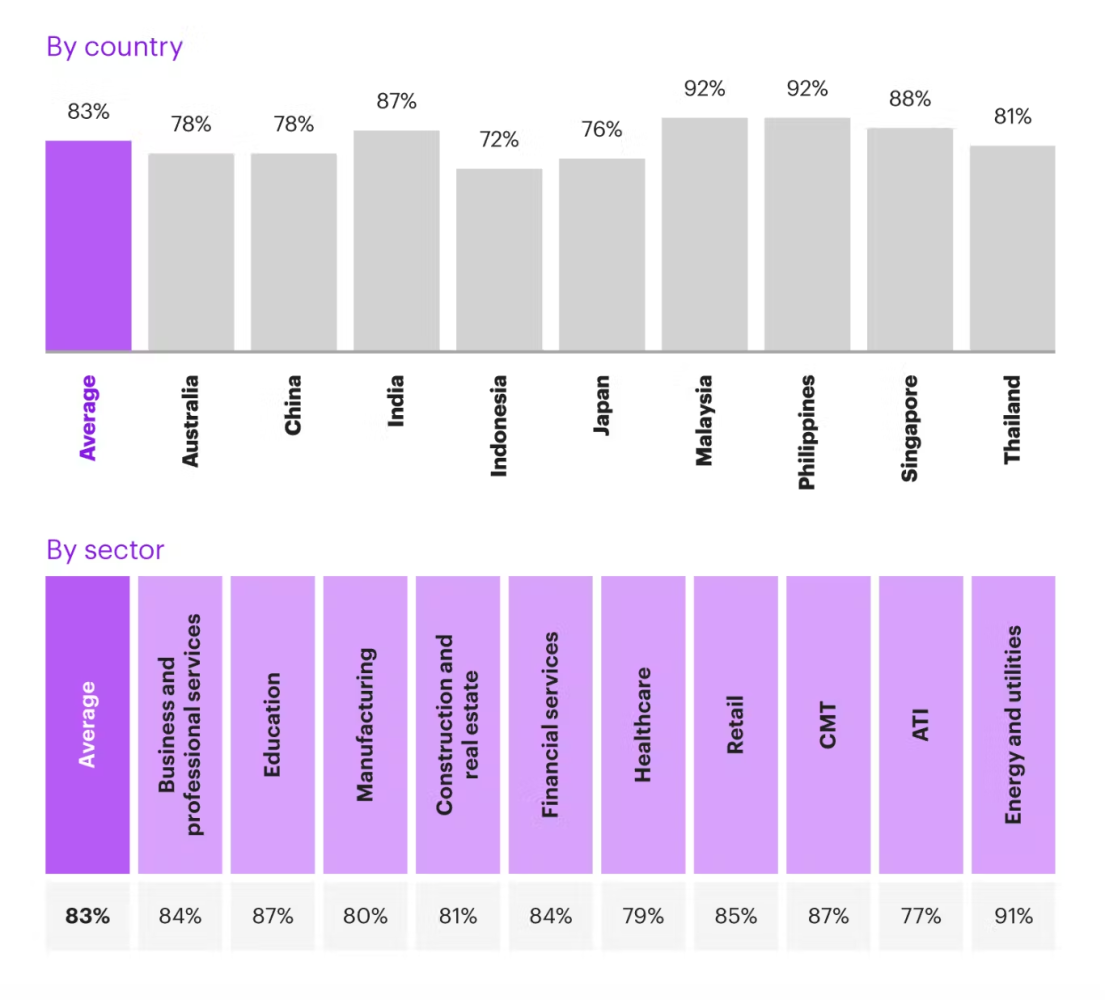
Source: Kearney via Eco-Business
Asian companies may be less inclined to boast about sustainability efforts compared to Western firms. A recent study of 1,000 executives in nine Asia-Pacific territories by management consulting firm Kearney delivered insights about how greenwashing risks are perceived in the region. Key figures:
- Over 80% of APAC executives are concerned about greenwashing (highest in Malaysia and Philippines, lowest in Japan and Indonesia).
- 84% of companies are more cautious in sustainability planning due to greenwashing fears.
- 72% of executives are hesitant to discuss sustainability plans publicly due to greenwashing fears.
- 72% of executives view sustainability as a cost, not a value creator (highest in India, Australia, and Indonesia).
- Despite concerns, most companies still aim for ambitious net-zero goals by 2030, but less than a third have plans aligned with the Paris Agreement.
Dont Let Greenwashing Hinder Your Success
By prioritizing transparency and taking concrete actions to reduce your environmental impact, you can build trust with consumers and stakeholders. Remember, genuine sustainability is not just good for the planet, it’s good for business. It can enhance brand reputation, attract environmentally conscious consumers, and improve operational efficiency.
Looking for Help on Your Sustainability Journey?
As a sustainability leader in the region, ASUENE can help your company navigate the complex world of greenwashing and achieve genuine environmental credibility. Our services address the specific challenges highlighted in the text:
- Carbon Accounting: We provide accurate measurement and reporting of your greenhouse gas emissions – the first step to avoiding greenwashing claims.
- ESG Rating Services: Gain a clear understanding of your environmental, social, and governance performance to identify areas for improvement and communicate transparently with stakeholders.
- Transparency & Communication Strategy: We’ll help you develop a data-driven sustainability strategy with clear messaging to avoid greenwashing accusations and build trust with consumers and regulators.
